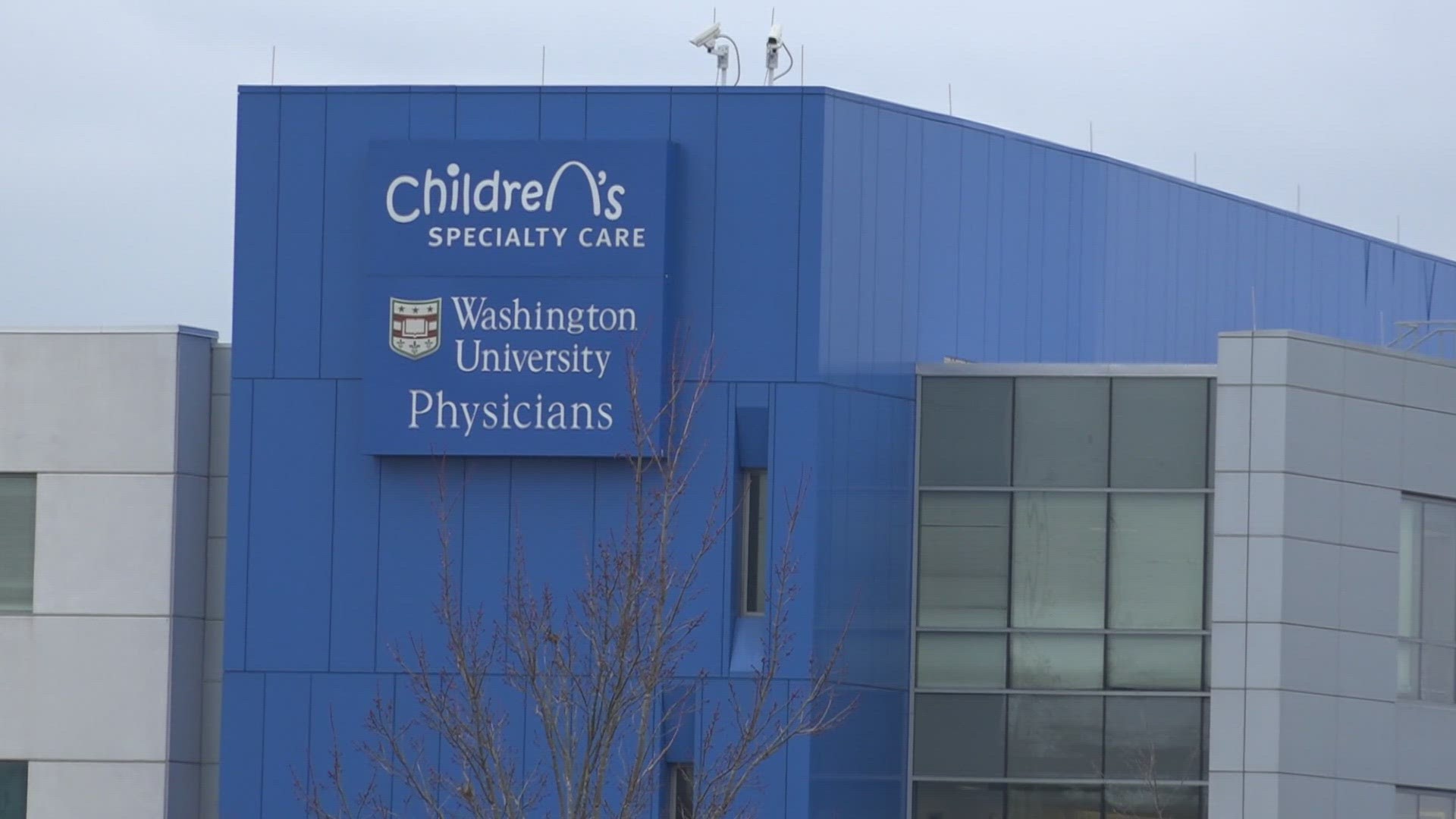ST. LOUIS — Physicians with the Washington University Transgender Center will no longer prescribe puberty blockers or hormones to minors for the purpose of gender transition, the university announced Monday.
This comes weeks after a law went into effect prohibiting Missouri healthcare providers from providing puberty blockers, hormones and gender-affirming surgeries to minors. Minors prescribed puberty blockers or hormones before Aug. 28 would still qualify under the law to continue to receiving those treatments, but the university said continuing to offer this care would open it up to legal liability.
We are disheartened to have to take this step," the university said in a statement. "However, Missouri’s newly enacted law regarding transgender care has created a new legal claim for patients who received these medications as minors.
"This legal claim creates unsustainable liability for health care professionals and makes it untenable for us to continue to provide comprehensive transgender care for minor patients without subjecting the university and our providers to an unacceptable level of liability."
Health care providers who violate the law face having their medical licenses revoked. Beyond that, patients who received puberty blockers and hormones as minors can sue their physicians. If they win, physicians must pay at least $500,000 in punitive damages alone.
Republican Gov. Mike Parson signed the bill in June, calling hormones, puberty blockers and gender-affirming surgeries “harmful, irreversible treatments and procedures” for minors. He said the state “must protect children from making life-altering decisions that they could come to regret in adulthood once they have physically and emotionally matured.”
Most adults still have access to transgender health care under the law, but Medicaid won’t cover it. Prisoners must pay for gender-affirming surgeries out-of-pocket under the law.
Patients who are receiving medical care through the center at St. Louis Children's Hospital will be referred to other providers. The center will continue to offer services such as education and mental health support, as well as medical care for patients over the age of 18.
Every major medical organization, including the American Medical Association, has opposed the bans on gender-affirming care for minors and supported the medical care for youth when administered appropriately. Lawsuits have been filed in several states where bans have been enacted this year.
Parson also signed legislation in June to require students from kindergarten through college to play on sports teams that align with their sex assigned at birth. Both public and private schools face losing all state funding for violating the law.
Shira Berkowitz, of the state’s LGBTQ+ advocacy group PROMO, said in a statement that Parson, Attorney General Andrew Bailey and the state legislature “blatantly committed a hate crime against transgender Missourians.”
“We are working quickly with coalition partners to explore all possible avenues to combat the harm being inflicted upon transgender Missourians,” Berkowitz said.
The St. Louis clinic fell under scrutiny early this year after former case manager Jamie Reed claimed in an affidavit that the center mainly provides gender-affirming care and does little to address mental health issues that patients also faced. Republican U.S. Sen. Josh Hawley and Bailey announced investigations after Reed's claims.
Missouri’s bans come amid a national push by conservatives to put restrictions on transgender and nonbinary people, which alongside abortion has become a major theme of state legislative sessions this year. Missouri is among nearly two-dozen states to have enacted laws restricting or banning gender-affirming medical care for transgender minors.
In April, Bailey took the novel step of imposing restrictions on adults as well as children under Missouri’s consumer-protection law. He pulled the rule in May after the GOP-led Legislature sent the bills to Parson.
Just hours after WashU's announcement, Planned Parenthood released a statement saying, in part, "In compliance with the law, it will continue to provide gender-affirming hormone therapy to all patients who want and need it, including young patients who have started care with another provider."
The Associated Press contributed to this report.

